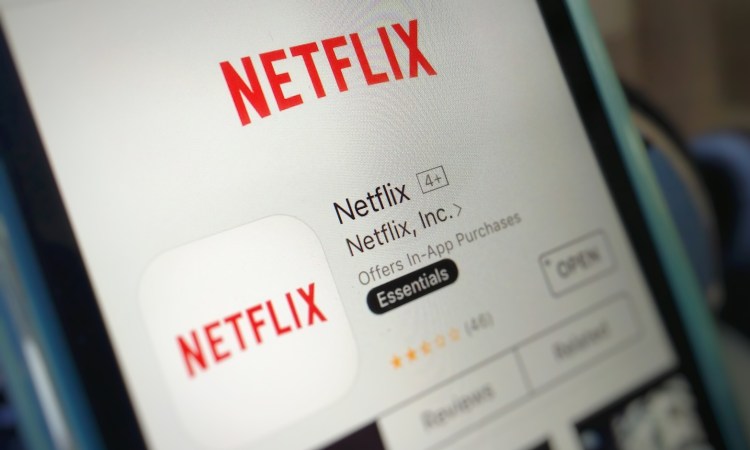Last week, Verizon and AT&T went on the defensive after T-Mobile chief John Legere claimed in a video that his mobile network serves up better-quality Netflix streams than those of his two rivals.
It turns out that Legere was, in fact, correct, but the culprits in this data-choking chicanery aren’t Verizon or AT&T.
7/ @TMobile has been listening to customers and thanks to a little partnership, @YouTube is now a #BingeOn partner!https://t.co/VQVZoM86Jh
— John Legere (@JohnLegere) March 17, 2016
Netflix has, for the first time, published details of how it caps mobile streaming globally in order to save subscribers from themselves — after all, mobile networks can charge hefty tariffs for going over their monthly allowance, and a single HD movie can consume up to 6 gigabytes in one fell swoop. Netflix explained in a blog post
We believe restrictive data caps are bad for consumers and the Internet in general, creating a dilemma for those who increasingly rely on their mobile devices for entertainment, work and more.
So in an effort to protect our members from overage charges when they exceed mobile data caps, our default bitrate for viewing over mobile networks has been capped globally at 600 kilobytes per second. It’s about striking a balance that ensures a good streaming experience while avoiding unplanned fines from mobile providers.
What Netflix doesn’t mention here, however, is that U.S. networks T-Mobile and Sprint are exempt from this capping because “historically those two companies have had more consumer-friendly policies,” according to a report in the Wall Street Journal (WSJ). In other words, Netflix says it doesn’t cap all streaming, because networks like T-Mobile and Sprint are less aggressive with pricing when a user oversteps their monthly allowance.
The scenario raises a number of questions, particularly in relation to net neutrality. Indeed, net neutrality rules generally preclude broadband and mobile providers from offering different levels of access for different services — the idea being that all websites and apps are created equal. But as Netflix is a content provider, such rules don’t apply, giving the California-based company carte blanche to make such decisions. But as the company has been such a vocal proponent of Internet equality in the past, this latest news could be construed as adhering to a double standard.
While the company’s decision seems sound on the surface, it’s astounding that it’s only come to light now, and it seems the companies themselves weren’t aware that this was going on. “We’re outraged to learn that Netflix is apparently throttling video for their AT&T customers without their knowledge or consent,” said Jim Cicconi, AT&T’s senior executive vice president of external and legislative affairs.
Offline
With mobile phone screens getting bigger and many cellular tablets on the market, resolution has perhaps become more of an issue than it was in the past. But there is one key reason Netflix needs to get its streaming affairs in order — as other video-on-demand (VoD) companies have embraced offline access, Netflix has steadfastly refused to consider the prospect of downloads. It has argued that this would bring needless complexity to the mix, and that the real solution is actually to improve broadband infrasctructure and accessibility. This is partly why Netflix is forging partnerships with airlines, to ensure its customers don’t have to pay for in-flight Wi-Fi.
Netflix may have a point — but if it’s to be taken seriously, it can’t be seen to be playing God with the quality of people’s video streams. It’s actions were well-meant, to be sure, but the next time it’s faced with the offline-access question, a Verizon or AT&T customer — or a customer of just about any mobile network aside from T-Mobile and Sprint — could legitimately take Netflix to task for its throttling policy. However, video-throttling would not be an issue if users were able to download videos to their device.
AT&T and Verizon account for the vast majority of the U.S. mobile market, so this latest report may not go down well — nobody likes to feel like a second-class citizen when they’re paying the exact same monthly fee as their counterpart on another carrier. So with one eye on a potential s***storm, Netflix has revealed that it plans to roll out a new data-saver feature in May, giving subscribers “more control over their data usage when streaming on mobile networks.” The company added:
Our research and testing indicates that many members worry about exceeding their mobile data cap, and don’t need the same resolution on their mobile phone as on a large screen TV to enjoy shows and movies. However, we recognize some members may be less sensitive to data caps or subscribe to mobile data plans from carriers that don’t levy penalties for exceeding caps. As we develop new technologies, we want to give all our members the choice to adjust their data consumption settings based on their video preferences and sensitivity to their ISPs data overage charges.
In a nutshell, Netflix will let users reduce the quality so they can stream more video, or, if they’re on an unlimited or higher data plan, they can elect for a better experience. This may not silence the offline-access advocates entirely, but letting customers decide the quality of the streams for themselves should go some way toward appeasing the public.
VentureBeat's mission is to be a digital town square for technical decision-makers to gain knowledge about transformative enterprise technology and transact. Learn More

